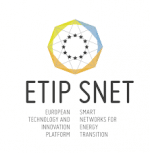EDDIE

The EDDIE project concluded its activities in December 2023. On this page, you can discover its results and key learnings.
The EU is struggling with sector skills mismatches for some time already. There is a discrepancy between the skills that are sought by employers and the skills that are possessed by individuals. The Blueprint for sectoral cooperation on skills was first introduced by the Skills Agenda for Europe in 2016. The European Skills Agenda 2020 has confirmed the Blueprint as a key initiative to create new strategic approaches and cooperation for concrete skills development solutions in the industrial ecosystems.
The purpose of the Blueprint is to:
-
- Gather skills intelligence and feed this into the European Centre for the development of professional formation’s (CEDEPOP) Skills Intelligence tool.
-
- Develop a sector skills strategy.
-
- Design concrete education & training solutions for quick take-up at regional and local level, and for new occupations that are emerging.
-
- Set up a long-term action plan.
-
- Address skills shortages and unemployment.
Hard Facts

Objectives
The project objectives include:
-
- To develop a European Skills Alliance.
-
- Implement improved or new qualifications in national VET and beyond systems.
-
- Foster collaboration and mobility among European training centres, universities, and industries.
-
- Provide a sustainable framework that allows education providers to define and update educational programs responding to industry changes.
-
- Improve the attractiveness of the energy sector as a career choice.
E.DSO and DSOS
The shift of our power system towards a smart grid configuration requires an increased digitalisation and fast upgrade of the technology installed to support the secure and reliable operation of distribution grids. Therefore, the continuous upskilling of blue- and white-collar workers employed in the sector is a fundamental requirement for the successful achievement of energy transition. Partners in EDDIE, including E.DSO, will help identify priorities and milestones for action in order to help bridge the current gap between the education sector and the energy sector’s workforce. This includes the development of concrete solutions, such as creating and updating curricula and qualifications based on changing or new occupational profiles.
Given that E.DSO can rely on an active network of more than 200 experts involved in its committees, working groups and task forces, E.DSO was tasked with leading Work Package 3 which identifies relevant stakeholders to the project, the mapping of these stakeholders, and finally the organisation of a strategic network for these stakeholders.
More Information
Contact: projects@edsoforsmartgrids.eu


